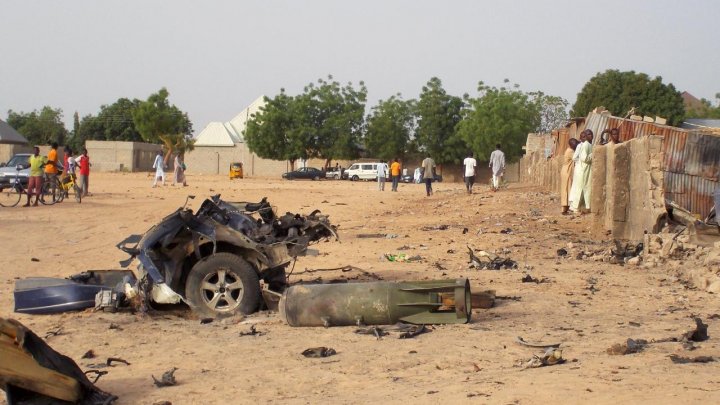Dozens of people were killed in Nigeria after a twin suicide bomb attack
 foto: Stringer/Reuters
foto: Stringer/Reuters
Suicide bombers have killed dozens of people at a mosque and a market in north-east Nigeria, in a twin attack bearing the hallmarks of Islamist insurgents Boko Haram, wrote theguardian.
The blasts happened at about 1:20pm (1220 GMT) in Mubi, a city 200km from the Adamawa state capital, Yola.
Adamawa state police spokesman Othman Abubakar said: “For now [the death toll] is 24,” but other sources gave far higher figures. Rescue worker Sani Kakale said: “In my presence, 42 dead bodies were taken to hospital and 68 injured.” A source at Mubi General hospital told AFP they had received 37 bodies and dozens of injured, many of them critically.
Suspicion immediately fell on Boko Haram, the jihadist group whose quest to establish a hardline Islamic state in north-east Nigeria has left at least 20,000 dead since 2009.
Mubi has been repeatedly targeted in attacks blamed on Boko Haram since it was briefly overrun by the militants in late 2014.
Nigeria’s government and military have long maintained that the Islamic State group affiliate is a spent force and on the verge of defeat. But there has been no let-up in attacks in the country’s north-east.
The Nigerian president Muhammadu Buhari has been in the US this week and met his US counterpart, Donald Trump, who pledged more support in the fight against Boko Haram.
In Mubi, local volunteer Habu Saleh, who was involved in the rescue effort, described the situation as “chaos all over the place”.
“We have evacuated dozens of dead and injured people to the hospital and the rescue operation is still ongoing,” he said.
Health workers from the hospital mobilized to attend to the victims, despite being on strike over pay and conditions.
Mubi resident Abdullahi Labaran said the first bomber mingled with worshippers who had gathered for prayers at the mosque at the edge of the market. He detonated his explosives “five minutes before the prayer started”, he added.
The second bomber blew himself up among the crowds of worshippers, traders and shoppers who fled the mosque towards a nearby market.